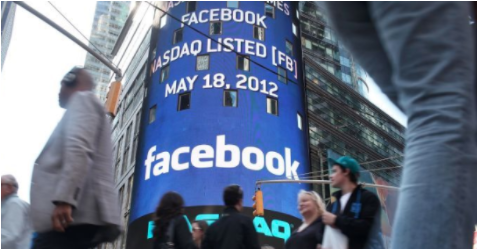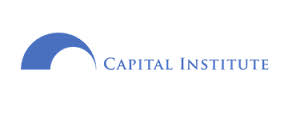The Character of Our Technology
New technology brings the promise of immense social welfare through previously unimagined connectivity, but to deliver, the tech industry must learn from Wall Street's mistakes.

The Character of Our Technology
“We can’t influence the direction of technology, but we can influence its character,” says Kevin Kelly, founder of WIRED, in a recent interview with Krista Tippett.
A quarter-century ago, financial derivatives technology, enabled by the emergent technology of distributed computing, was about to transform finance and global capital markets forever. The rise of derivatives technology made profound contributions to the global economy, from a revolution in genuine risk management for banks, businesses, and governments, to mass efficiencies that resulted from linking global capital markets which reduce the cost of capital for productive investment. The technology also, in part, enabled and most certainly exacerbated the financial crash of 2008, with extreme adverse consequences still pulsing through the real economy—consequences that have destabilized the democratic liberal order of the Western world.
During the formative years of derivatives technology, we on Wall Street argued earnestly that responsible self-regulation of derivatives would enable innovation to unlock the potential efficiencies and resulting economic prosperity that was the promise. Undue government regulation, no matter how well-meaning and thoughtfully crafted, would impede innovation that this technology made inevitable. Furthermore, there would be unintended consequences “worse than the disease.” We were wrong.
It turns out that the character of Wall Street, reflecting on the insight Kevin Kelly shared in his Krista Tippett interview, was not up to the challenge. Derivatives were hijacked by reckless speculators, manipulators, and, in certain cases, outright fraudsters. Derivatives, as a result, is now a dirty word.
Far more than financial derivatives, social media brings the promise of immense social welfare through previously unimagined connectivity and the network effect, which makes each social platform exponentially more valuable as more people and organizations join it. Like derivatives in the early years, social media as a technology is largely unregulated, this is in part because would-be regulators struggle to understand it, much less keep up with its rapid evolution, and its many uses and abuses. Will social media become the derivatives of tomorrow?
The unintended social consequences of this technology on our children in a world dominated by intentionally addictive social media are daunting enough. Recent evidence that the technology has spurred an underground of millions of fake accounts—used fraudulently by many (including the Russians to undermine our democracy, it now seems clear)—is chilling. The “LIBOR scandal” is trivial in comparison.
And we are now facing a future of artificial intelligence that some believe will fundamentally change what it means to be human. What to do?
Kelly guides us to focus on the character of our technologies. He uses the example of the Amish, generally (mis)understood to reject modern technology – they ride in horse-drawn buggies rather than cars for example.
Kelly explains that the Amish make technology choices as a community, in contrast to the personal choices most of us in the West make when considering whether to adopt a technology or not. For the Amish, their culture rests firmly on two values: family and community. So when considering a new technology, they assess (through trial by early adapters) whether the new technology will strengthen the family, and, whether it will strengthen the community. Their decision to stick with horses, Kelly explains, means travel is limited to the fifteen-mile range of a horse. This ensures that both social connection and commerce is concentrated within the local community, strengthening it in the process. Of course, this value system comes with costs, but the Amish know what they value and are equally clear to ensure the character of the technologies they chose to support their values.
If there is one value that America remains united around, even in these divisive times, it is democracy. Like the Amish, we would be wise to be clear on what values we hold dear, and make our technology choices accordingly.
In the rapidly evolving context of technological advance, there is truth to the argument that unintended consequences of regulation can be worse than the disease. But if we have learned nothing else in the past quarter-century, we should now understand that ideologically based calls for free markets, free speech, and freedom to carry guns are insufficient. Reality is more complex. Rules and regulations (or lack thereof) are all choices we have no way to avoid.
Equally impossible to avoid is technology’s exponentially growing impact on our lives, and even our humanity. As such, it has never been more essential to get clear on the character of technology we want. And for that we must be willing to make hard choices, just like the Amish do, grounded in the fierce defense of the values we hold dear.
Democracy demands, at the very least, fair elections not compromised by either foreign powers, hostile or otherwise, or ideologically driven billionaires, no matter their views. Last election, social media enabled manipulation—if not compromise—by both.
If our values were truly grounded in a fierce defense of a fair democratic process of governance, we the people, through our elected leaders, would, among other things, deliver Facebook and Twitter a blunt message, recognizing full well the consequences of such a choice:
Trying harder is not good enough. Either prove you can protect your networks during elections from fraudulent and malicious bots, whether homegrown or from foreign hostile powers, or we will have no choice but to shut you down for the three months prior to our national elections.
If a similarly harsh message were delivered to Wall Street and taken seriously regarding the abuse of derivatives to exacerbate the consequences of fraudulent lending, and the existence of fraudulent lending at all, the 2008 crash would not have happened. The stakes with social media and artificial intelligence in the future are far more profound.
Will society and Silicon Valley, learn from the derivatives technology experience? If not, “social media” and “artificial intelligence” are destined to become dirty words as well. And society may not recover.

